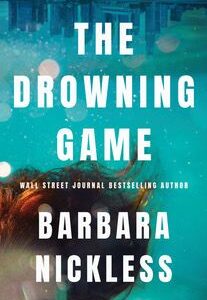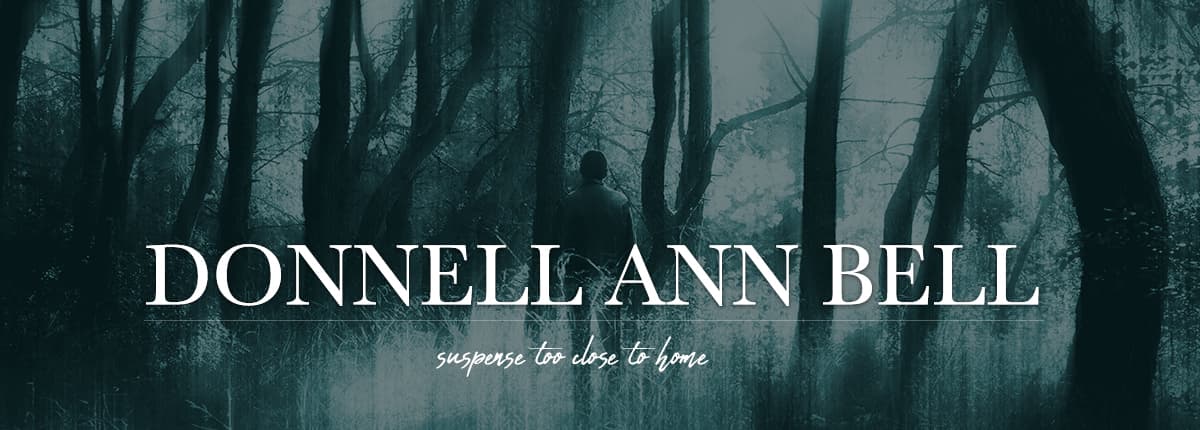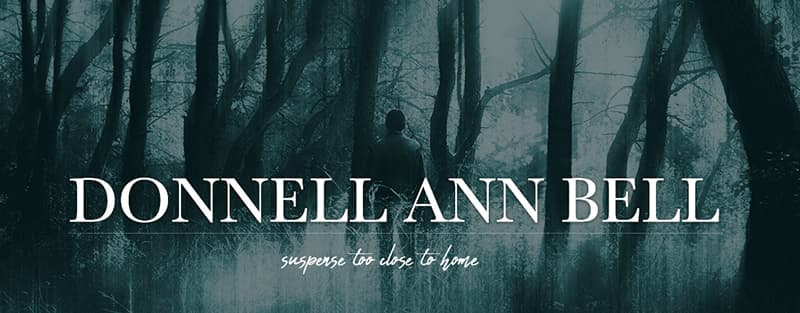Interview with Barbara Nickless’s The Drowning Game
 A while ago, Barbara Nickless mentioned she was interested in writing historical fiction. Imagine my surprise when I read an early copy of her standalone January 2025 release The Drowning Game. This book is contemporary and modern in every sense of the word. Although readers will discover it’s packed with geography, geopolitics and includes an abundance of history. Shall we go behind the scenes? Please welcome Wall Street Journal and Amazon Charts bestselling author Barbara Nickless ~ Donnell Ann Bell
A while ago, Barbara Nickless mentioned she was interested in writing historical fiction. Imagine my surprise when I read an early copy of her standalone January 2025 release The Drowning Game. This book is contemporary and modern in every sense of the word. Although readers will discover it’s packed with geography, geopolitics and includes an abundance of history. Shall we go behind the scenes? Please welcome Wall Street Journal and Amazon Charts bestselling author Barbara Nickless ~ Donnell Ann Bell
Donnell: Barb, what a sensational read. You know, I recall the topic of history coming up during our visit a few months ago, but nowhere do I remember you bringing up ultra luxury yachts—especially in Colorado. Did I miss something? Take us back to when this novel was a blank page on your keyboard. What inspired The Drowning Game?

Author Barbara Nickless
Barbara Nickless: First, thanks for having me on your blog. It’s always a pleasure. Due to world events, my agent advised me to hold off on the historical novel. But writers are like sharks: if we stop moving, we’ll die. I’ve long been intrigued by espionage and covert action. (So fascinated that I’ve begun a self-directed year-long master’s degree in intelligence.) When I read headlines, I’m always wondering why diplomats, cabinet members, and others—from lowly officials to world leaders—make the decisions they do.
Rest assured; they’re privy to something we aren’t. Writing spy novels means imagining yourself in the room, watching while deals are made, concessions are offered, and the world hopefully dodges a war. We’ve read about or witnessed the tragedy of intelligence failures—Pearl Harbor, the 9/11 attacks, the war in Ukraine. But we don’t hear about the successes. That’s where novelists can play our favorite game: what if?
Donnell: Fiction writing is all about the characters. In this case, however, the plot and setting are so intertwined you would have a much different book without all three. The Brenner family, descendants of emigrants from Austria and builders of award-winning luxury yachts, the setting, the country of Singapore and the Asian population, and a client with close—dare I say dangerous ties— to the Chinese Communist Party.
You travelled to Singapore. Did these characters and plot exist before your arrival in the country? I’m also curious if you’ve been to Austria and Monaco as you also write about these locales in The Drowning Game?

Exterior shot of Monastery
Barbara Nickless: Oh, I wish! I so wanted to go the yacht show in Monaco and hobnob with the rich and famous. Okay, maybe not hobnob. Observe from afar. But I had a travel budget and a deadline. Singapore was the most critical place for me to visit. The characters existed in my mind as fragments before I went there. In Singapore’s city-state, amid the smells of incense offerings and white gardenias, while walking crowded yet immaculate streets, hiding from tropical downpours, sidestepping monitor lizards, ducking into Buddhist and Hindu temples, and feasting on the divine chicken rice, I felt Nadia and the others come to life.
Donnell: A central theme runs through this novel, advice given to the Brenner sisters by their father. When Cassandra, who’s working in Singapore, begins exhibiting strange behavior, Nadia notices. That, and a command from their father to check on her, is the inciting incident that sends Nadia to Singapore. What advice did Nadia’s father give, and how does she use that advice when she reaches Singapore?
Barbara Nickless: The Brenner family motto: trust no one. Followed closely by the idea that if you do have to trust someone, first verify their background. “Trust but verify” was the motto that guided American politicians during World War Two—a bit of trivia that Nadia learns from her uncle. But when she lands in Singapore, she’s plunged into a shadowy world where the safest path means trusting no one—no matter what they say or who they claim to be.
Donnell: Nadia and Cass share similarities but they are also different in personalities. Can you explain? Also, I’m curious in your drafts if Nadia was your planned protagonist. Was it your intention for her to experience such phenomenal character growth?

Buddha inside the Monastery
Barbara Nickless: Having raised two kids, I’m amazed at how different siblings can be. Same genetics, same environment, totally different personalities. Nadia was the sister with more to learn in terms of courage and sacrifice, so she was the logical protagonist. I love stories about people who are thrust into events not of their own making, then forced to sink or swim. Or—given the option—simply run away. As I was writing this novel, I kept asking myself what I would do. Nadia has the same thoughts. She, of course, ultimately steps up. I would have gone home and hid under the bed.
Donnell: One of your major strengths is creating memorable characters. Even your secondary characters, Emily, Cass’s assistant, Inspector Lee, and the terrifying Han and Dao Shujun. I also adored the very generous Matthew and Lukas, the bodyguard Matthew insists accompany Nadia.
You’re specific in characters’ roles. And just as the U.S. has operatives in federal agencies, China and Singapore do as well, and you’re equally specific in listing those agencies. An incredible amount of research must have gone into this book. I read your acknowledgements. Using a CIA term 😉 how did these valuable assets help you? And talk about the timeline you had from start to finish to complete The Drowning Game.
Barbara Nickless: My husband keeps make gentle suggestions that I should write novels that require less research. But I’m way too curious. Maybe curiosity will someday kill this cat, but until then it’s full steam ahead. I love learning about espionage and the world of intelligence from members of the IC (Intelligence Community). Even with a deadline goblin breathing down my neck, I couldn’t stop myself from asking questions and delving deeper. Technically, I usually have 12 months to finish a book. But given the months I devote to research I end up writing a novel in a much shorter time.
Donnell: The commission of yachts is a lengthy complicated engineering and architectural process. Reading The Drowning Game opened my eyes to the Have Yachts and Have Nots, the myriad personnel needed not only to build, but to man, and then there’s the sea trials! Will you explain to readers the difference between, say, Red Dragon and your average yacht? 😊

Marina Bay Sands Hotel Singapore
Barbara Nickless: Not to mention the annual cost of docking and running a superyacht, which can run into the millions of dollars every year. A yacht is typically defined as starting around 130 feet. A superyacht is more than 200 feet long. And a megayacht—like the one Cass and Nadia are building in Singapore—is over 300 feet. With that length comes extra volume and a lot of extra toys. While a smallish yacht might have some jet skis and an exercise space, a superyacht is a floating palace with every possible amenity, from helicopters to infinity pools to fully decked out movie theaters and spas. Wealthy owners sometimes make requests that push the engineering and physics beyond what is reasonable. And when that happens, tragedy can ensue. We saw that earlier this year with the sinking of the superyacht Bayesian and the loss of seven lives.
Donnell: The Drowning Game was an education. Particularly that George Mѐng would be allowed to reach billionaire status in Communist China. Mѐng’s creation of an artificial intelligence program that rivals others may have something to do with it. Naturally, foreign governments would love to acquire. I was surprised to learn Mѐng was an MIT grad.
What went into the creation of Mѐng? And how accurate would you say is his depiction?
Barbara Nickless: The character of Mѐng is loosely based on actual Chinese billionaires who are often educated in the United States and are allowed to create and keep wealth in China because of their relationship to the Chinese Communist Party. Called the “red aristocracy,” these men and women—descendants of those who supported Mao Zedong during China’s civil war—have the necessary connections needed to acquire wealth. But it’s getting harder for them to keep their money and businesses as the Party tightens its control. Some of these people simply disappear. Others are smuggling out their wealth, often to Singapore. Still others are forbidden to leave. In these cases, desperate times call for desperate measures.
Donnell: I mentioned history. Part of what caused Cass to lose focus on the completion of Red Dragon was a long-hidden secret. A huge shift in priorities occurs when Nadia discovers it, too. Nadia risks everything, family, wealth, and prestige by following in Cass’s footsteps. Ethics, justice, and the quintessential right and wrong come into play. As I read, I wondered if I would have been so brave. I’m curious if you asked yourself the same question as you wrote these powerful scenes.
Barbara Nickless: It’s a great question for a novelist to ask, isn’t it? People find it all too easy to say they would have done the right thing—protecting Jews in Nazi Germany, for example. But when push comes to shove, who are we really? What are we willing to risk? What if the lives on the line belong to our family? That’s a tactic the Chinese Communist Party uses to coerce people into betraying other Chinese: they threaten their families. Ultimately, a person must live with his or her conscience. I believe an innate desire to be good drives many people to do what’s moral and ethical, even at great personal cost.
~~~
Thank you, Barb, for assuaging my curiosity! After reading The Drowning Game I feel like I’ve travelled the world.
For readers, I focused on some of the main points during this interview. But there is so much more. Incredible settings, cultural differences, and pulse-pounding tension. Apt pacing, the insertion of humor when needed, incredible page-turning hooks, and so much liquor, I’m worried about these characters’ livers! In closing, my opinion still stands. Barbara Nickless is an extraordinary talent I’m proud to call friend. Best wishes on The Drowning Game and beyond. Xoxo
The Drowning Game is available for preorder Amazon.com: The Drowning Game: 9781662510014: Nickless, Barbara: Books
 About the Book: (Already a bestseller with 735 reviews)
About the Book: (Already a bestseller with 735 reviews)
About the Author: #1 Amazon Charts and Wall Street Journal bestselling author Barbara Nickless promised her mother she’d be a novelist when she grew up. What could be safer than sitting at a desk all day? But a sense of adventure led her astray for a few decades. Now an award-winning author and creative writing instructor, she spends her free time snowshoeing, caving and hiking the Colorado Rockies.
To learn more, see Author Barbara Nickless











Barb, it’s amazing to me that you write about the clean street; are there severe laws that discourage littering, etc? 🙂
Littering comes with severe penalties. It’s even illegal to leave a toilet unflushed in a public restroom. 🙂
Oh my gosh! Er…. that bogs the imagination!
Sounds like a great book, Barbara. Best of luck with it!
Thanks so much Lois!
Fantastic chat! Love the “who are we really” line. It lurks just under the surface every moment of our lives.
So true, Marie. And, IMHO, we only figure it out through challenges.